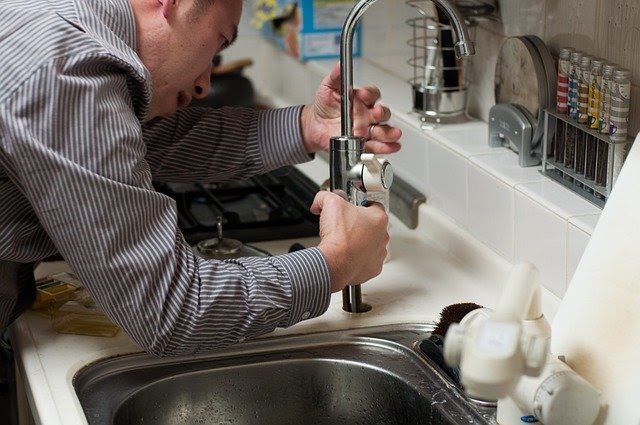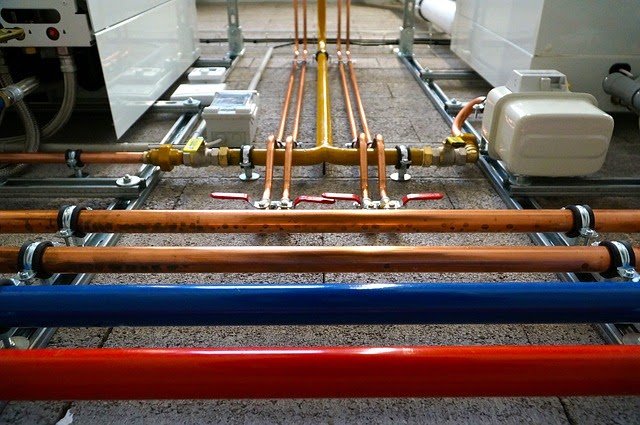The trade of plumbing is among those that many people perceive as being straightforward. Many DIYers quickly find out, however, that this is not the case. In any case, following a few simple rules will make your life easier if you want to tackle some simple plumbing tasks yourself.
Plumbing Dos and Don’ts
Before discussing some of the jobs you might want to do and the ones to avoid, you should understand some simple dos and don’ts.
- DO turn off the water supply before doing anything.
- DO ensure that you have at least the essential tools needed to complete the job.
- DO take photos before you start working on complex piping systems; you will be glad you did this when reassembling everything.
- DON’T use overly harsh chemicals if there are other options available. These are bad for the environment and might even cause more trouble if it is too strong for the pipe material.
- DON’T just dive in without checking local building codes and regulations. You might end up in a lot of trouble if you burst a mains water pipe.
- DON’T think that you can fix every problem; often, a professional will have the knowledge and experience to find and fix issues much quicker and more efficiently than you can.
Some Tasks You May Wish To Attempt Yourself
Plumbing is something we rarely think about in our homes. Nevertheless, there are some tasks that you can tackle before having to call out a qualified plumber, such as:

Dripping Tap Repair
A leaky tap is one of the most annoying things about living in a house. Besides the bathroom, leaks are also common in the kitchen and the laundry room these days. While the problem can be caused by several factors, including worn or defective fitting, there are a few quick fixes that will help you get your water flowing again. If your house was set up correctly initially with water gates, it should be a relatively straightforward task. You will need some basic tools and a spare tap.
Install A New Sink Basin
It will take more effort physically, but a new sink basin is just as simple as replacing a tap. Remove any sealant from underneath the sink before unscrewing the waste pipe. After removing the fixtures, you can lift them off their seating and replace them with a new one. Ensure that you have seated it properly and sealed it around all of the areas that could leak.

Unclogging Drains
When it comes to your home, there is no end to the potential for clogs and drains to develop. The accumulation of hair, skin and even food particles can lead to the formation of clogs, all of which can cause a clog in your drains. When this happens, it can lead to the formation of a drain blockage, which can cause your drains to become choked with debris. The first step is to get a plunger and begin pumping. Typically, this will allow water to flow again once the drain has been cleared. For significant blockages, you might have to use a chemical that you pour into the hole, which begins to dissolve the cause of the jam. If this still doesn’t remedy the situation, it is probably time to call in a professional.
Jobs To Avoid
There are some plumbing jobs that you are either unqualified to do appropriately or don’t want to. These are often for more significant issues concerning pipework, heating systems, and more. Furthermore, you might require the services of an emergency plumber who offers to come out at any time and fix the problem. Even if your problem isn’t an emergency, some jobs you should avoid include:
- Leaky pipes: This can be a straightforward fix or a very large issue. The point is that it is difficult to diagnose the problem without experience.
- Pipes that have frozen or burst: A few parts and tools may be required to repair burst pipes, but if they burst due to frozen pipes, the problem is much more severe. When water freezes, it expands, and this puts enormous strain on the pipes and joints. Therefore you might need an entire overhaul to get the system working again without leaking.
- Drainage problems or clogged toilets: Although the more basic blockages can be flushed out using a plunger, the larger ones will need a plumber to come in and use specialized tools to break up the source of the clog.
- Problems with your water heater: You want to stay well away from anything pertaining to your water heater. They are highly pressurized systems, and offer limited visibility of the pipes. Furthermore, because electricity is often involved, you could cause a serious accident if you don’t have the necessary skills.
- Low water pressure: You might be able to fix this by yourself, but the chances are low. This is because a professional plumber will often have seen this problem numerous times. Therefore they will be better positioned to find the issue and fix it without causing any collateral damage.
Choosing A Plumber: What You Should Look For
When searching for a competent plumber, you should check for a few things. First, the company needs to offer an emergency call-out service to repair the problem, whether during the day or at night. For example, this plumber in Brick, NJ, provides this call-out service, and they also only employ professional tradespeople. This is also essential because if you cannot fix a problem by yourself, you don’t want another unqualified person coming and making the same mistake as you. Some other factors to look out for during your search include:
- Accreditations: What certifications do they possess, and where were they trained.
- Are they registered: usually, a tradesperson will need to register with their state or municipality to practice within the law.
- Are they insured: This is obvious. In the unfortunate event that they cause more damage, you will want to receive compensation.
- Are they local or national: There are many options to choose from. It is better to opt for a local business because they can provide you with personalized service and arrive at your location far quicker. In addition, it is always a good thing to support your local community.
People underestimate how complex plumbing is. It extends far beyond unblocking drains and changing a tap. If you wish to attempt some work by yourself, you should follow some of the dos and don’ts mentioned at the start of this post.


